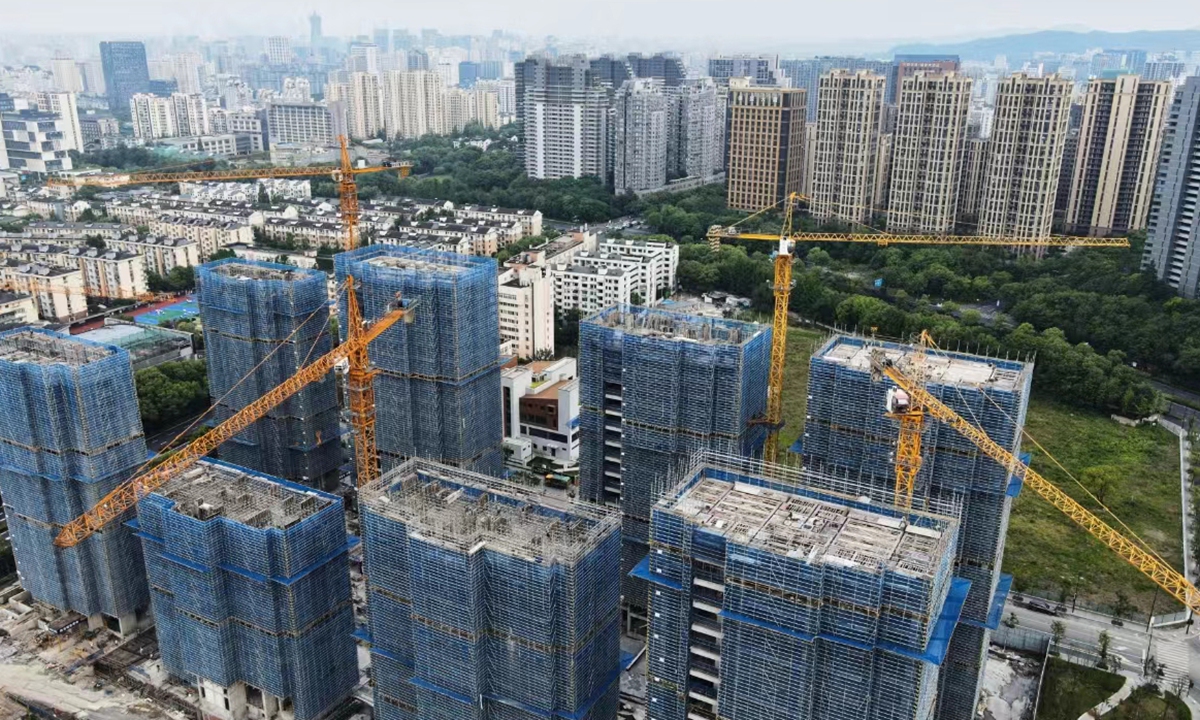NFRA head inspects Guizhou real estate projects, signaling firm support for financing needs of property developers

The National Administration of Financial Regulation is established on May 18, 2023 and is in charge of regulating the entire financial businesses excluding the securities sector, which is administered by China Securities Regulatory Commission. Photo: VCG
Li Yunze, head of the National Financial Regulatory Administration (NFRA), led a team to inspect Southwest China's Guizhou Province from Wednesday to Thursday, focusing on work involving an urban real estate financing coordination mechanism, among other items, according to a statement on the official website of NFRA on Friday.
It marks the latest move from Chinese officials in ensuring timely financing support to property developers and improving their liquidity, amid broader efforts to dissolve the sector's financial risks, observers said. Last week, China released a multiple-pronged approach concerning every aspect of the real estate market ranging from relaxing down payments and cutting housing loan interest rates to reducing housing inventory, an "unprecedented" move in the past few decades which analysts said is set to fuel a full-fledged rebound across the housing sector.
During the visit, Li went to typical real estate projects in Guizhou's cities of Zunyi and Guiyang, and investigated the implementation of the urban real estate financing coordination mechanism. In a symposium on real estate work he chaired in Zunyi, Li stressed that local governments, real estate enterprises, and financial institutions must each fulfill their responsibilities in carrying out policies launched by the central government.
He underscored the importance of strictly managing the "whitelist" for project developers and prioritizing the delivery of residential projects that have been sold but are still under construction.
Li also vowed that the NFRA work will focus on preventing and fending off real estate risks, resolving local government debt, and reforming small and medium-size financial institutions to minimize financial risks. He also stressed the need to strengthen coordination between central government and local authorities to achieve shared responsibilities, joint problem-solving, and aligned efforts.
Yan Yuejin, research director at Shanghai-based E-house China R&D Institute, told the Global Times on Friday that Li's recent visit to Guizhou exemplifies the collaborative efforts between the central and local governments. The policy implemented last Friday required detailed implementation at the local level, and Li's inspection will provide better guidance to local financial work on the real estate market.
Yan noted that Guizhou has experienced certain pressure in housing delivery in recent years during the property adjustment period, and as such, it is very important for the local authorities to accelerate work on addressing potential financial risks.
A number of localities including Beijing, Shanghai and Guangzhou, South China's Guangdong Province, have carried out detailed policy implementation in either reducing down payment ratios or lowering housing loan rates, after the sweeping policy package was released on May 17.
Financing to embattled Chinese property developers has also shown concrete developments in recent months.
Cash-strained China Vanke has secured a syndicated loan of 20 billion yuan ($2.76 billion) from leading financial institutions including China Merchants Bank, of which 10-billion-yuan has already been disbursed, news website thepaper.cn reported on Thursday. It marks the largest single loan received by a Chinese property developer since 2020.
Global Times

